Please use this identifier to cite or link to this item:
https://repositorio.ipea.gov.br/handle/11058/15068Files in This Item:
| File | Description | Size | Format | |
|---|---|---|---|---|
| ar_IPCOnePager17.pdf | 127.53 kB | Adobe PDF | 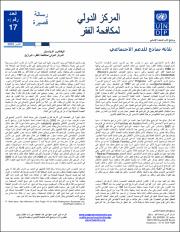 View/Open | |
| en_IPCOnePager17.pdf | 41.15 kB | Adobe PDF | 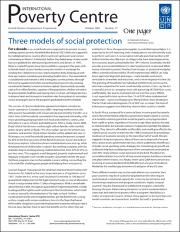 View/Open | |
| es_IPCOnePager17.pdf | 64.14 kB | Adobe PDF | 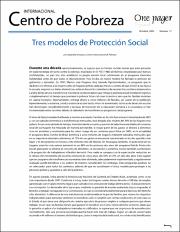 View/Open | |
| fr_IPCOnePager17.pdf | 69.26 kB | Adobe PDF | 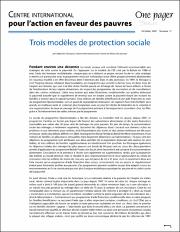 View/Open | |
| pt-br_IPCOnePager17.pdf | 65.71 kB | Adobe PDF | 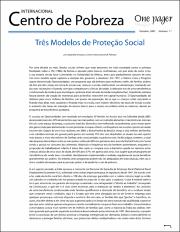 View/Open | |
| zh-hans_IPCOnePager17.pdf | 293.33 kB | Adobe PDF | 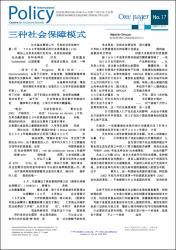 View/Open |
| Title: | Three models of social protection |
| Other Titles: | ثلاتة نماذج للدعم الاجتماعي Tres Modelos de Protección Social Trois modèles de protection sociale Três Modelos de Proteção Social Three models of social protection |
| Authors: | Grinspun, Alejandro |
| Abstract: | For a decade or so, social funds were supposed to be present in every strategy against poverty. Modeled after Bolivia’s FSE (1986) and supported by multilateral banks, country after country set up its own local version culminating in Mexico’s Solidaridad, before they faded away. A new model has now grabbed the attention of governments and donors. In 1997, Mexico created Progresa (now Oportunidades), a program that gives cash to female heads of poor families every two months in exchange for sending their children to school, improving their diets, keeping up with their vaccination schedules and attending health clinics. The idea behind a conditioned cash transfer is that it mitigates current poverty (through the income supplement) while preventing future poverty (by creating incentives for families to invest in human capital). Oportunidades provides cash to five million families, a quarter of the population; children are said to be growing taller, healthier and staying more in school, with larger declines in dropout rates and increases in transition rates from primary to secondary school among girls due to the program’s graduated-transfer schedule. (...) Por uma década ou mais, fundos sociais tinham que estar presentes em toda estratégia contra a pobreza. |
| metadata.dc.rights.holder: | International Policy Centre for Inclusive Growth United Nations Development Programme |
| metadata.dc.rights.license: | O texto e dados desta publicação podem ser reproduzidos desde que as fontes sejam citadas. Reproduções com fins comerciais são proibidas. |
| metadata.dc.type: | One Pager |
| Appears in Collections: | Publicações do IPC-IG |
Items in DSpace are protected by copyright, with all rights reserved, unless otherwise indicated.

